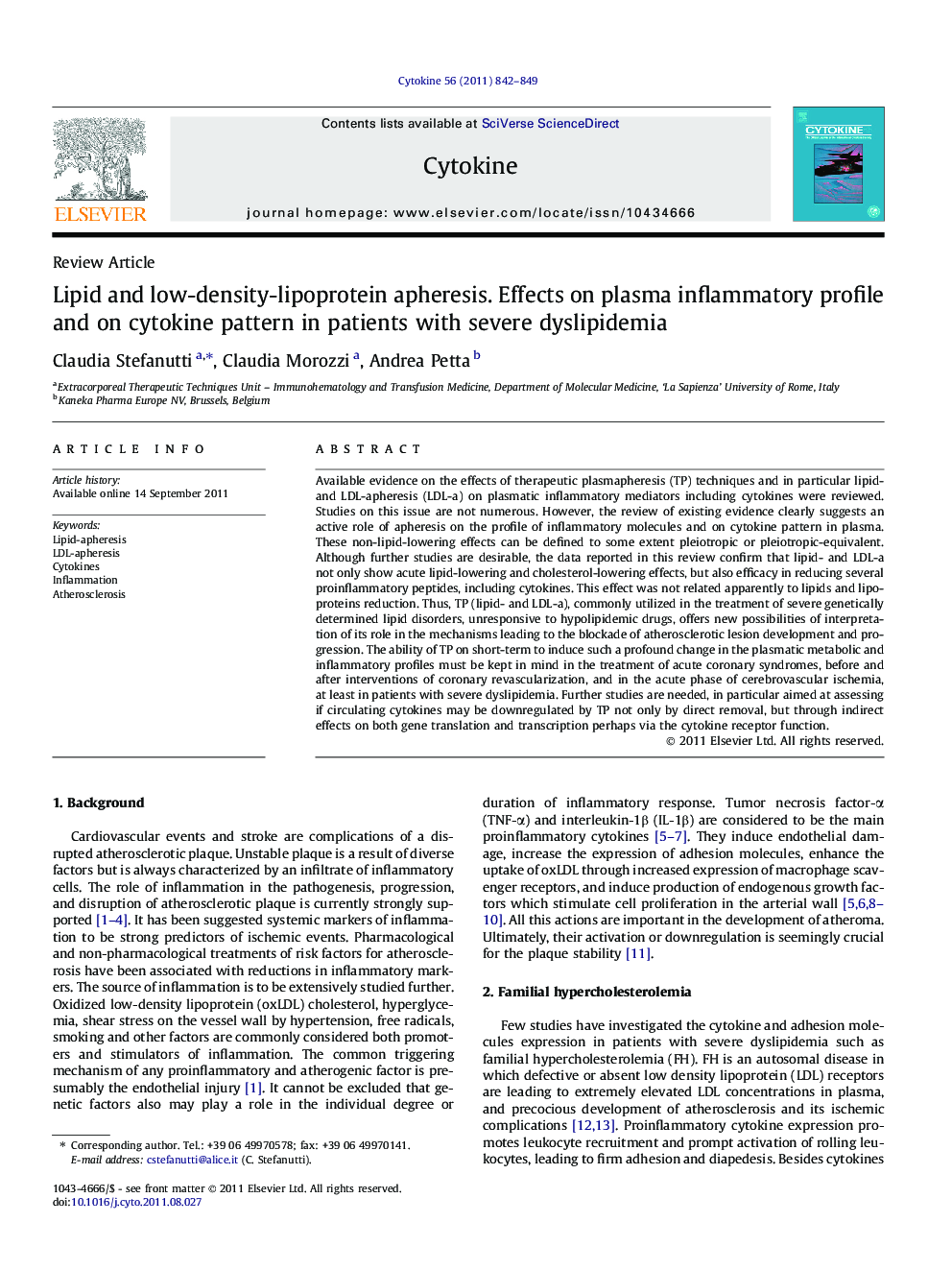| Article ID | Journal | Published Year | Pages | File Type |
|---|---|---|---|---|
| 5898362 | Cytokine | 2011 | 8 Pages |
Available evidence on the effects of therapeutic plasmapheresis (TP) techniques and in particular lipid- and LDL-apheresis (LDL-a) on plasmatic inflammatory mediators including cytokines were reviewed. Studies on this issue are not numerous. However, the review of existing evidence clearly suggests an active role of apheresis on the profile of inflammatory molecules and on cytokine pattern in plasma. These non-lipid-lowering effects can be defined to some extent pleiotropic or pleiotropic-equivalent. Although further studies are desirable, the data reported in this review confirm that lipid- and LDL-a not only show acute lipid-lowering and cholesterol-lowering effects, but also efficacy in reducing several proinflammatory peptides, including cytokines. This effect was not related apparently to lipids and lipoproteins reduction. Thus, TP (lipid- and LDL-a), commonly utilized in the treatment of severe genetically determined lipid disorders, unresponsive to hypolipidemic drugs, offers new possibilities of interpretation of its role in the mechanisms leading to the blockade of atherosclerotic lesion development and progression. The ability of TP on short-term to induce such a profound change in the plasmatic metabolic and inflammatory profiles must be kept in mind in the treatment of acute coronary syndromes, before and after interventions of coronary revascularization, and in the acute phase of cerebrovascular ischemia, at least in patients with severe dyslipidemia. Further studies are needed, in particular aimed at assessing if circulating cytokines may be downregulated by TP not only by direct removal, but through indirect effects on both gene translation and transcription perhaps via the cytokine receptor function.
⺠The effects of lipid- and LDL-apheresis techniques on plasma inflammatory mediators and cytokines in Severe Dyslipidemia were reviewed. ⺠Patients with severe dyslipidemia with/without CAD were treated with lipid- and LDL-apheresis utilizing different techniques. ⺠Plasma pro- and anti-inflammatory cytokines were measured before and after lipid- and LDL-apheresis. ⺠The reported cytokines changes are probably due to a direct/indirect effect of lipid- and LDL-apheresis. ⺠Lipid- and LDL-apheresis techniques can promote anti-inflammatory and anti-atherogenic changes in cytokine profile.
